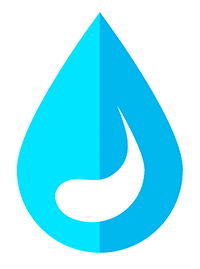
March 25, 2022
Bulletin interne de l'Institut Pasteur


World Water Day: several water-related diseases still exist
March 22, 2022 was World Water Day, one of the high points of the World Water Forum, which runs until tomorrow in Dakar. The theme for this year's World Water Day was: "Groundwater – making the invisible visible." To mark the occasion, the Institut Pasteur took advantage of World Water Day to reiterate the importance of research in this area and to point to the various actions and initiatives that it is leading in Paris and within the Pasteur Network.
Water is a fundamental resource supporting life and a core component of public health surveillance. Several "aquatic" diseases affect populations in which access to water and high-quality sanitation cannot be guaranteed. World Water Day, instituted in 1994 by the United Nations Organization, is primarily intended to raise awareness of the critical issues surrounding this valuable resource. The stark reality is that there are two billion people worldwide without access to drinking water. It is also an opportunity to highlight the fact that there are several diseases related to lack of access to clean water, that are actually carried by water, or that are caused by pathogens or vectors that develop in water.
 Launch of the Waterborne Infectious Diseases MOOC
Launch of the Waterborne Infectious Diseases MOOC
The Institut Pasteur in Paris has launched the Waterborne Infectious Diseases MOOC, co-led by François-Xavier Weill (Head of the Escherichia coli, Shigella and Salmonella National Reference Center and the Enteric Bacterial Pathogens Unit), Maël Bessaud (Viral Populations and Pathogenesis laboratory), Dominique Franco (Emeritus Professor in Digestive Surgery and special advisor to the Department of Education) and Liliana Avila-Ospina (research engineer in the Institut Pasteur's Biological Resource Center (CRBIP)).
This online course explains why water can transmit bacterial, viral and parasitic infections and explores ways to combat and prevent them. It will run from March 22 to May 24, 2022.
Registration is open until May 18, 2022
With the support of:

 Spotlight on two Pasteur Network initiatives
Spotlight on two Pasteur Network initiatives
• The Emerging Pathogens Study and Surveillance Network (RESER) seeks to reinforce the reference and surveillance activities in the field of bacteriology within the National Reference Centers of nine African Pasteur Network members. Notably the project concerns Vibrio cholerae.
• Ecomore 2: this One Health project is studying how changes to ecosystems brought about by human activity and climate change impact the health of populations. It particularly seeks to better document the risk of spread of leptospirosis and dengue caused by climate change beyond current borders